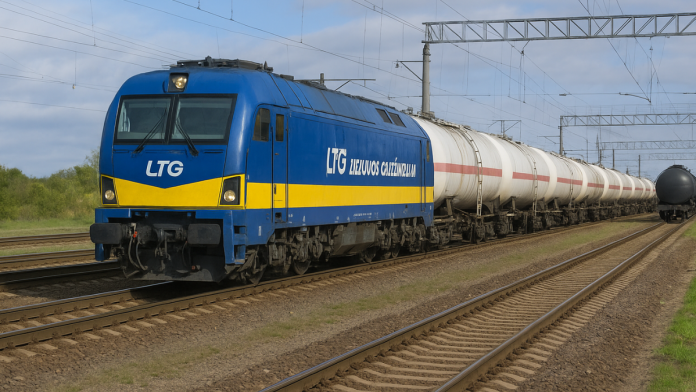Lithuania has announced a major decision that is attracting strong attention across Europe. The country’s state-owned railway company has confirmed that it will stop transporting oil linked to two major Russian energy firms. This move follows new sanctions placed on the companies by the United States and the United Kingdom. The decision affects fuel transport to the Kaliningrad region, a Russian territory located between Lithuania and Poland.
The announcement marks a big shift in how oil products will move through the region. The step also shows how international sanctions can directly change everyday transport routes and trade between countries.
Why Lithuania Is Stopping the Oil Transport
Lithuania’s railway operator has stated that it will no longer transport any oil or oil products connected to Lukoil and Rosneft. These two companies are among the most important oil and energy firms in Russia. Due to the sanctions announced by the US and UK, Lithuania must follow restrictions that block companies from working with businesses under sanctions.
The railway operator said that all transport activities related to the sanctioned firms will end when the current transition period closes on November 21. The transition period allows existing shipments and contracts to be completed before the ban becomes fully active. After this date, the railway company will not carry any shipments connected to Lukoil, Rosneft, their subsidiaries, or any other companies linked to them.
$50 billion blow to Putin’s war chest — Western sanctions hammer Russia’s oil exports
The company highlighted that it is following international sanctions rules strictly and responsibly. It also shared that obeying Western laws and restrictions is a main priority. This helps to avoid penalties and ensures that Lithuania remains in line with its European and international partners.
How This Decision Affects the Oil Route to Kaliningrad
The change affects a key fuel transport route used for years. Lithuanian Railways has been moving large quantities of oil products between Russia and the Kaliningrad region. Since Kaliningrad is physically separated from mainland Russia, goods must pass through Lithuania or be transported by sea to reach it.
In 2024, the railway operator transported 371,000 tons of oil products for this route. Almost all of this oil came from Lukoil. Since the start of 2025, an additional 194,000 tons of Lukoil oil have been transported along the same route. These numbers show how big the transport activity was and why the decision to stop it is so significant.
With the sanctions now being applied, trains in Lithuania will no longer carry oil linked to the two sanctioned companies. This may force Russia to depend more on sea routes or explore different land routes that do not involve Lithuania.
Global crackdown intensifies as US sanctions 50 firms aiding Iran’s oil exports
Sanctions and Their Broader Effects on Oil Transport
The US and the UK have placed new sanctions on major Russian energy firms to increase pressure on the country’s energy sector. These measures aim to limit business activity and reduce the financial strength of the targeted companies.
By stopping the transport of oil linked to these firms, Lithuania is actively supporting the sanctions. This move makes it harder for Russian oil to pass through European routes and shows strong cooperation between Lithuania and Western nations.
Reports also note that more than 160 strikes have hit Russian oil facilities since early 2025, affecting production and supply chains. With sanctions and these strikes combined, the oil transport situation is shifting quickly.
Lithuania has stated that it will continue to follow Western rules. The railway operator said that obeying sanctions is important for keeping trust with international partners. This decision brings a major change to a key fuel route and stops a significant flow of Russian oil through Lithuania to Kaliningrad.


